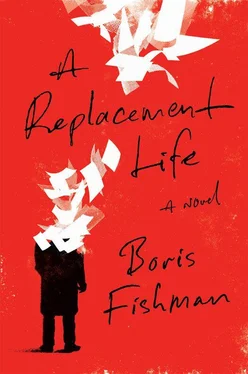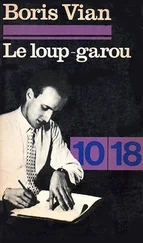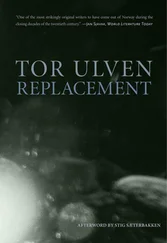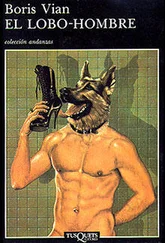“Am I just a thug?” I said. She looked away resentfully. “Fine,” I said. “I help you with the captain, you go with me on a date.”
She refused, so I returned to my friends, leaving her to stand there alone.
She came over. “So be it,” she said. “One date.”
The captain and I knew each other from the neighborhood. He lived by Tatar Gardens. You had to take it easy with army captains, but I was something, too. I’m an old camel now, but back then, sparks flew from my feet when I walked — you could light a cigarette if you wanted. I was known in the neighborhood. Anyway, I went over, put my arm around him, and said: “Captain, I just wanted to thank you.”
“What for?” he said. He was nervous, you could see.
“For not letting my girl get lonesome.” I pointed to Ada.
He turned the color of a sugar beet. “I had no idea. Forgive me, Lazar. You’re a lucky fellow.”
I walked Ada home that night. On our first date, she sat about a kilometer away from me. But she agreed to a second. I had a while of persuading ahead of me; we weren’t married for another two years.
Move forward forty years. We were just about to emigrate to America. I was watching television when I heard Ada scream out my name. In the newspaper, there was an advertisement from an Ilse Shusterman, searching for fellow inmates from the Minsk ghetto. Ada flew to Krasnodar to meet with her. Except for a lot of wrinkles, Ilse was the same beautiful girl, married to a scientist, a grandmother already, spoke fluent Russian. Before leaving, Ada asked if she had ever heard anything about Weidt. Ilse said that she had been told by the partisans that he had been assigned to a German POW camp. He had died there, for undisclosed reasons.
Did Ilse ever feel anything for Weidt? Ada didn’t dare ask, and Ilse didn’t volunteer. I doubt it. But it’s to them that Ada and I owe the fifty-seven years that we had together.
Eighty thousand Jews lived in the Minsk ghetto, almost all of them killed. After the war, they got a memorial stone by one of the killing pits; it actually said Jews died here, as opposed to “Soviet patriots,” which is what it said almost everywhere else — if they put up a plaque in the first place. After the war, the government kept saying they were going to tear down the memorial and fill in the pit.
Generalkommissar Kube also did not live to see the end of the war. His maid, who was part of the resistance, placed a bomb under his bed, timed to go off in the middle of the night. (What did that man dream about?) They had to scrape his brains off the ceiling. I regret it was an instant death.
Lazar wanted Slava to fall in love with his granddaughter, so Slava gave him a love story. The rest he invented, following one detail until it gave him the next. He had started far more carefully with the letters — lists of details, outlines, narrative arcs. He had always known what piece of information would come next. However, the stories came out better if he didn’t know everything in advance. In real life, one thing might have happened, but in the letter? It might have, it might not. Was Weidt’s plan a trick to root out ghetto inmates who were causing problems for the administration? Would he slip out of his ropes in the middle of the night, club to death the partisan guarding him, and spirit off Ilse? Was he first a devoted Nazi or a Nazi who had fallen in love? You had to write it down to find out.
In their claim letters, the estranged elders of Midwood, né Minsk, spent time together in a way they refused to in real life. Grandmother and Grandfather fell in love in Lazar’s story; someone else got Lazar’s poor hearing. However, other things were lost, blurred, made false. Mother, Father, and Zeyde killed when the ghetto was liquidated: That is what had happened to Grandmother’s family, he was certain of that, even if the fact crowned Lazar’s story. But was it her father who was a ferrier? And Grandfather hadn’t demanded a date in exchange for helping Grandmother free herself of the leering captain, had he? Why had Slava written it differently, then? That was what the story had asked. The price was, by the end, Slava didn’t remember what about it was true and what was invented.
He was startled by the ring of the phone. The last time it had rung this late, it had been to announce Grandmother’s last trip to Maimonides. It rang several times before he picked up.
“Mr. Gelmonn?” arrived nasally from the other end. “I hef hea — Vyacheslav Gelman? Slava Gelman? Sam Gelman?”
“Who?” Slava said. No one used his full name. Sam Gelman? He had used that name for a year in junior high school.
“Vee-ya-chess-love Gelman,” the nose continued to prod. “Terrific and unusual name. Is the number correct?”
“No, it’s me,” Slava said. He tried to chase the fatigue from his eyes. “Who’s calling?”
“My name is Otto Barber. From the Conference on Material Claims Against Germany.”
Slava’s blood froze.
“Mr. Gelman?”
“Yes?”
“Your assistance would be most valuable.”
“I don’t understand,” Slava said.
“Mr. Gelman, it has been to us a report,” Otto Barber went on conspiratorially. “Regarding some of the letters that have arrived for the restitution. So I am hoping to speak with you.”
Slava walked over to his futon and made himself lie down, as if to enforce casualness. “I don’t understand,” he repeated.
“I will explain all, naturally,” Otto Barber said.
“How did you reach me?” Slava said, stalling. He wasn’t going to write any more! He was the smoker who quits the day before he finds out he has cancer.
“Ze White Pages? Ze Yellow Pages? It is a listed number, excuse me.”
Was it? “You’re calling very late,” Slava said, then wondered if he was giving himself away, too defensive. He had never thought about the phone. On the street, he turned around every time he was in Brooklyn. Foolishness — what, they were going to swoop down on him with sirens? It’s never what you think.
“That is absolutely without manners, I agree,” Otto said. “You have to please forgive me. I am like the rodent in the wheel here — meeting number one, meeting number two… We have meetings to plan meetings. It is quite unbelievable, actually: It is ten P.M., and have I been eating my dinner? No!” He giggled.
Slava didn’t answer.
“Mr. Gelman, the letters are false!” Otto barreled on. “Can you believe this? Do you know anything about it, please?”
“Why would I know anything about it?” Slava insisted.
“Shame!” Otto bellowed, and giggled again. “I had my fingers crossed, I am telling you! Mr. Gelman, I would like to meet with you to discuss this subject. What you can tell us can be very valuable.”
“What I can tell you?” Slava said.
“I would not dream of requesting you to come visit us at the Conference here — though it’s a nice building and the coffee is free, yes! But maybe you and I drink something stronger together? If so, I’m buying! You are doing me the favor, Mr. Gelman, so I can come to you.”
“I don’t know what I can tell you,” Slava repeated. “I had nothing to do with it.”
“To do with it?” Otto shouted. “Oh my goodness, what laughter. You are a joker like me, Mr. Gelman. Together, we will get along. No, Mr. Gelman— to do with it ? What, you wrote the false ones? Ha-ha-ha. No, Mr. Gelman, I want your… consulting. You are a complete American. You live on the Upper East Side, you work at Century magazine — though I find it quite boring, excuse me, our secret! — and yet you can understand the Russian person’s thinking. Why does someone do this, how does someone do this. Because I am not trained for this kind of — sleuthing, I learned this word recently. I am, quite frankly — how do you say it — out of my level.”
Читать дальше











